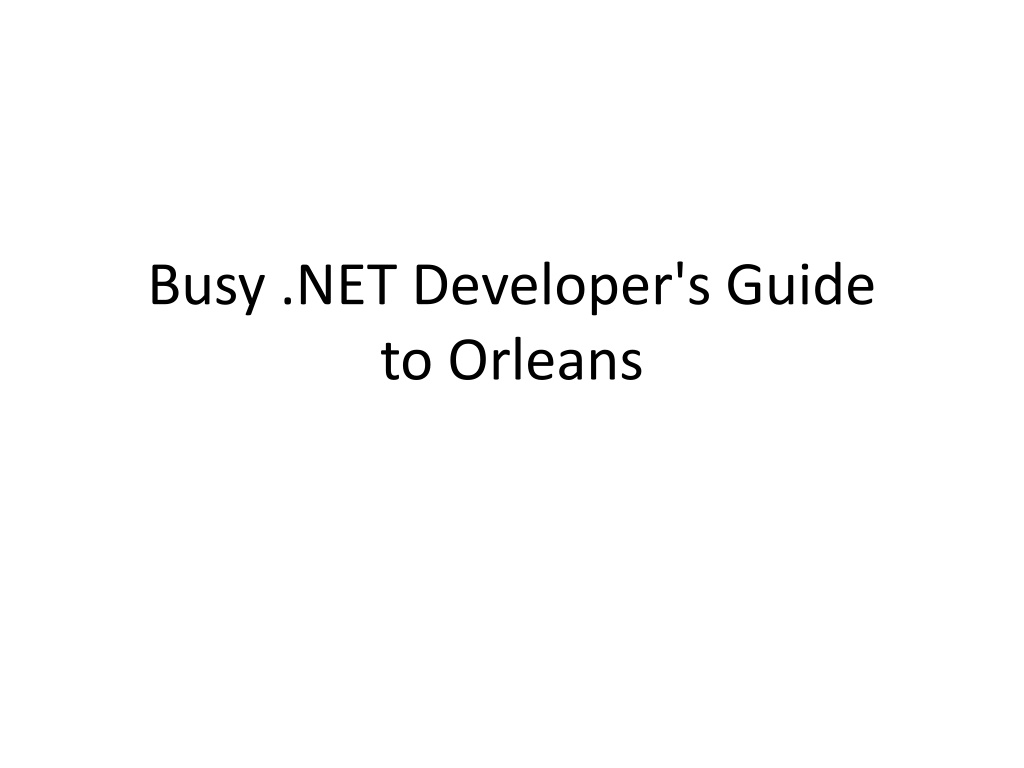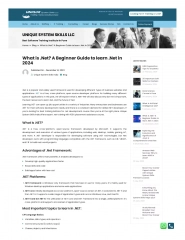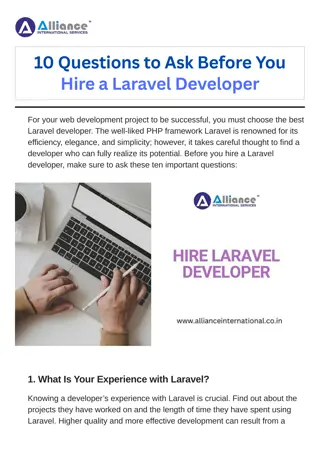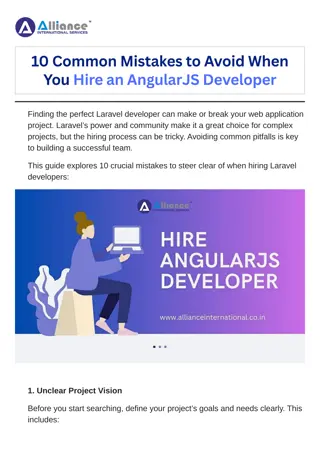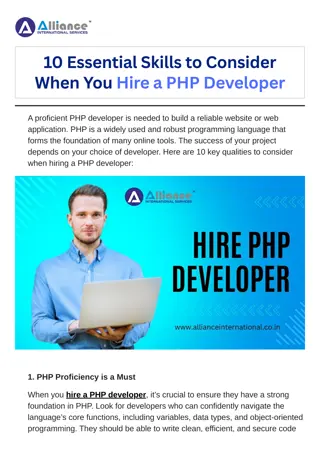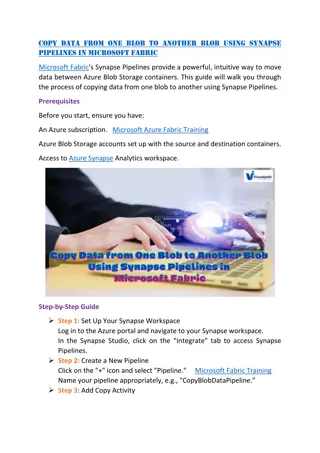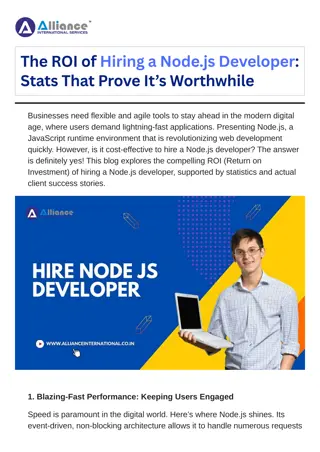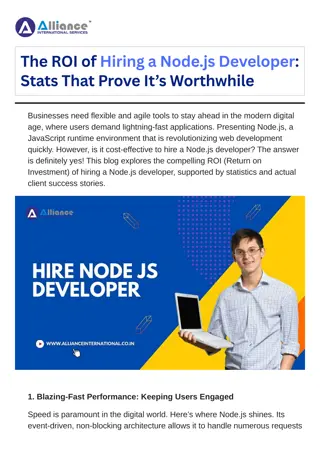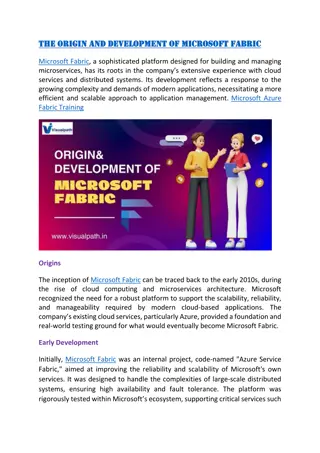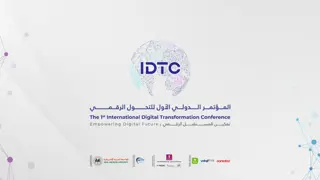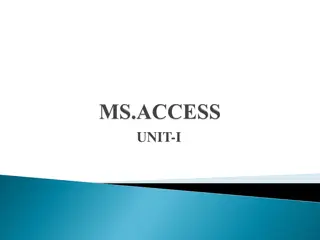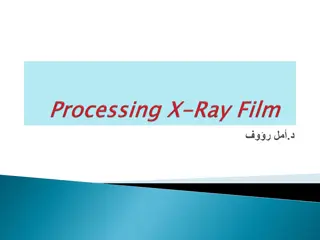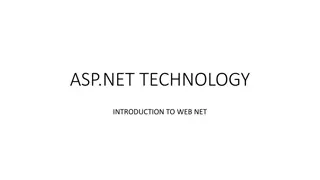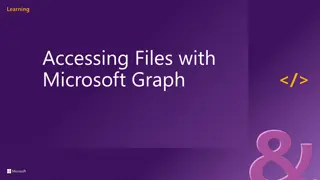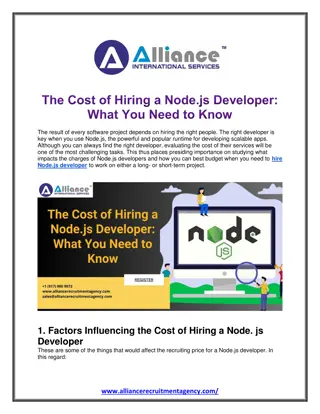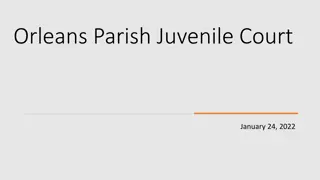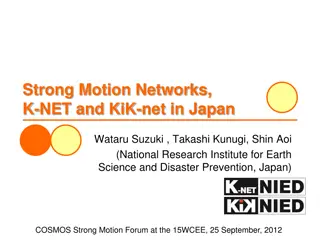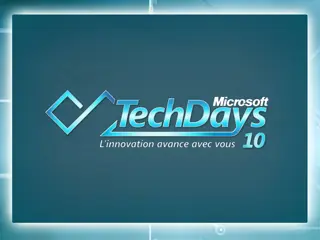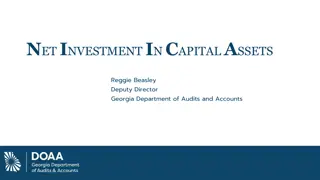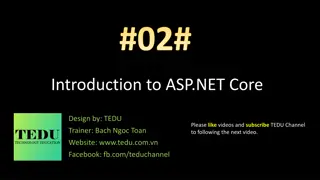Exploring Microsoft Orleans: A .NET Developer's Guide
Dive into the world of virtual actors and distributed system design with Microsoft Orleans, a powerful framework for building scalable and resilient applications in .NET. Learn about key concepts like grains, silos, and virtual actors, and discover how Orleans simplifies the development of complex distributed systems.
Uploaded on Sep 28, 2024 | 0 Views
Download Presentation

Please find below an Image/Link to download the presentation.
The content on the website is provided AS IS for your information and personal use only. It may not be sold, licensed, or shared on other websites without obtaining consent from the author. Download presentation by click this link. If you encounter any issues during the download, it is possible that the publisher has removed the file from their server.
E N D
Presentation Transcript
Busy .NET Developer's Guide to Orleans
Objectives Our goal here is to: Explore what a "virtual actor" is and how it works See how Orleans implements these virtual actors Talk about Orleans-centric distributed system design
In a nutshell MICROSOFT ORLEANS: OVERVIEW
Microsoft Orleans: Overview What is it? actors model for CLR technology stacks "grains" stateless or persistent virtual actors: "always alive" semantics open-source https://github.com/microsoft/orleans used on some sizable projects Halo 4, Halo 5
What's important to know? ORLEANS CONCEPTS
Orleans Concepts Core concepts: Grain Silo Cluster Host
Orleans Concepts Grain "Virtual Actor": Identity + Logic + State defined observable/"hook"able lifecycle Single-threaded, serial message receipt single living instance: "activation"
Orleans Concepts Grain identity Objects have implicit identity (memory address) Actors use more generalized identity Orleans grains must have "long-lived" identity Orleans uses one of five options for identity: long GUID string GUID + string (compound)
Orleans Concepts Grain state Grains can be entirely stateless singletons, in essence can allow multiple activations Grains can hold state state is held across lifetime of server state can be persisted to external storage
Orleans Concepts Grain interface Describes the messaging surface uses CLR interfaces and async idioms only type visible to clients "IDL" for Orleans
Orleans Concepts Message bundle of data passed across the wire binary format; serialized (deep copy) actual runtime type passed (not declared type) Orleans generates "serializers" as part of build can be invoked await (preserves order) or async (no ordering)
Orleans Concepts Silo server instance/process, containing grains manage allocation/lifecycle of grains provides location transparency forces "remote-first" mentality designed to work together in a cluster defined observable/"hook"able lifecycle
Orleans Concepts Cluster collection of silos responsible for grain placement in Silos random local-to-caller (server) hash-based activation-count-based configurable and customizable
Orleans Concepts Host process which contains the running server(s) most often a Console, Service, or ASP.NET app heavy use of Microsoft Hosting classes
Orleans Concepts Rules of thumb Grains always exist runtime activates them on demand runtime deactivates them "later" or on request Everything is a Task or Task-of-T enforcing/requiring asynchronicity
Zero to Go in.... ORLEANS GETTING STARTED
Orleans Getting Started Platform requirements Microsoft .NET (.NET Core 6, 7) ... and a network
Orleans Getting Started Hello, Orleans https://github.com/tedneward/Demo- Orleans/HelloWorld four projects: interfaces (IDL) implementations client server/host any CLR language (most often C#)
Orleans Getting Started Interfaces ClassLibrary requires Microsoft.Orleans.Core.Abstractions Microsoft.Orleans.CodeGenerator.MSBuild
Orleans Getting Started IHelloWorld public interface IHelloWorld : Orleans.IGrainWithIntegerKey { Task<string> SayHello(string name); }
Orleans Getting Started Grains (implementations) ClassLibrary requires Microsoft.Orleans.Core.Abstractions Microsoft.Orleans.CodeGenerator.MSBuild Interfaces
Orleans Getting Started HelloWorld public class HelloWorld : Orleans.Grain, IHelloWorld { private readonly ILogger _logger; public HelloWorld(ILogger<HelloWorld> logger) { _logger = logger; } public Task<string> SayHello(string name) { _logger.LogInformation("SayHello: name = '{name}', ", name); return Task.FromResult($"Hello, {name}, welcome to Orleans"); } }
Orleans Getting Started Host Console requires Microsoft.Orleans.Server (Microsoft.Extensions.Hosting) (Microsoft.Extensions.Logging.Console) Interfaces Grains
Orleans Getting Started Program.cs var builder = new HostBuilder() .UseOrleans(c => { c.UseLocalhostClustering() .Configure<ClusterOptions>(options => { options.ClusterId = "dev"; options.ServiceId = "HelloWorld"; }) .ConfigureApplicationParts( parts => parts.AddApplicationPart(typeof(HelloWorld).Assembly).WithReferences()) .ConfigureLogging(logging => logging.AddConsole()); }); var host = builder.Build(); await host.StartAsync();
Orleans Getting Started Client Console requires Microsoft.Orleans.Client Interfaces
Orleans Getting Started Client Setup var client = new ClientBuilder() .UseLocalhostClustering() .Configure<ClusterOptions>(options => { options.ClusterId = "dev"; options.ServiceId = "HelloWorld"; }) .ConfigureLogging(logging => logging.AddConsole()) .Build(); await client.Connect(); Console.WriteLine("Client successfully connected to silo host \n");
Orleans Getting Started Client calling host var friend = client.GetGrain<IHelloWorld>(0); var response = await friend.SayHello("Good morning, HelloGrain!");
Implementing Orleans actors ORLEANS BASICS
Orleans Basics Interfaces must extend an "identity interface" describes the kind of primary key IGrainWithGuidKey IGrainWithIntegerKey IGrainWithStringKey IGrainWithGuidCompoundKey IGrainWithIntegerCompoundKey methods must return Task
Orleans Basics Grains must implement grain interface must extend Orleans.Grain base class optionally override OnActivateAsync/OnDeactivateAsy nc for notification of activation/deactivation exceptions will cancel activation deactivation is not guaranteed (e.g., server crash) primary key available via GetPrimaryKey
Orleans Basics Grain References grains are never accessed directly clients must obtain a "grain reference" pass identity to GrainFactory.GetGrain references can be used as typical .NET objects
More Other topics Persistent grains Timers and reminders Streams Heterogenous Silos Evolving/versioning Grains Event sourcing Transactions
Summary Microsoft Orleans virtual actor system built on top of CLR providing easy language-to-messaging syntax/semantics capable of supporting high scale/load
Where to go to get more RESOURCES
Resources Code/Github Orleans OSS repository https://github.com/dotnet/orleans Official docs https://learn.microsoft.com/en- us/dotnet/orleans/ OrleansContrib https://github.com/orgs/OrleansContrib Awesome-Orleans https://github.com/OrleansContrib/Awesome-
Resources Books "Introducing Microsoft Orleans" https://www.amazon.com/Introducing-Microsoft- Orleans-Implementing-Cloud- Native/dp/148428013X "Microsoft Orleans for Developers" https://www.amazon.com/Microsoft-Orleans- Developers-Cloud-Native- Distributed/dp/1484281667 "Distributed .NET w/Microsoft Orleans" https://www.amazon.com/Distributed-NET-
Credentials Who is this guy? Architect, Engineering Manager/Leader, "force multiplier" Principal -- Neward & Associates http://www.newardassociates.com Educative (http://educative.io) Author Performance Management for Engineering Managers Author Professional F# 2.0 (w/Erickson, et al; Wrox, 2010)
